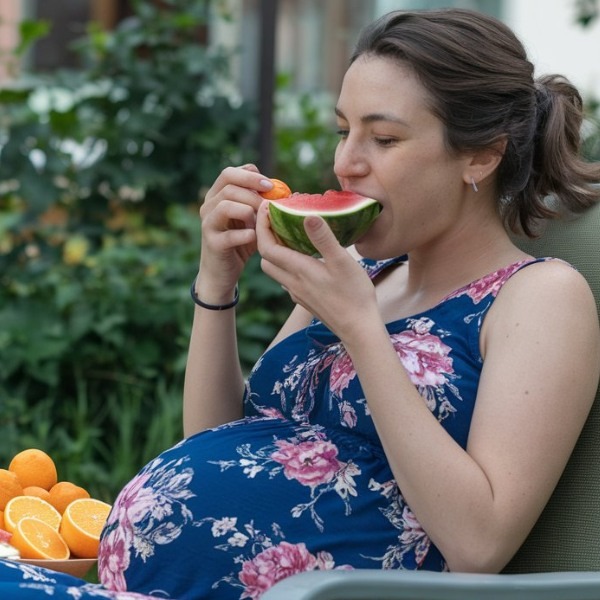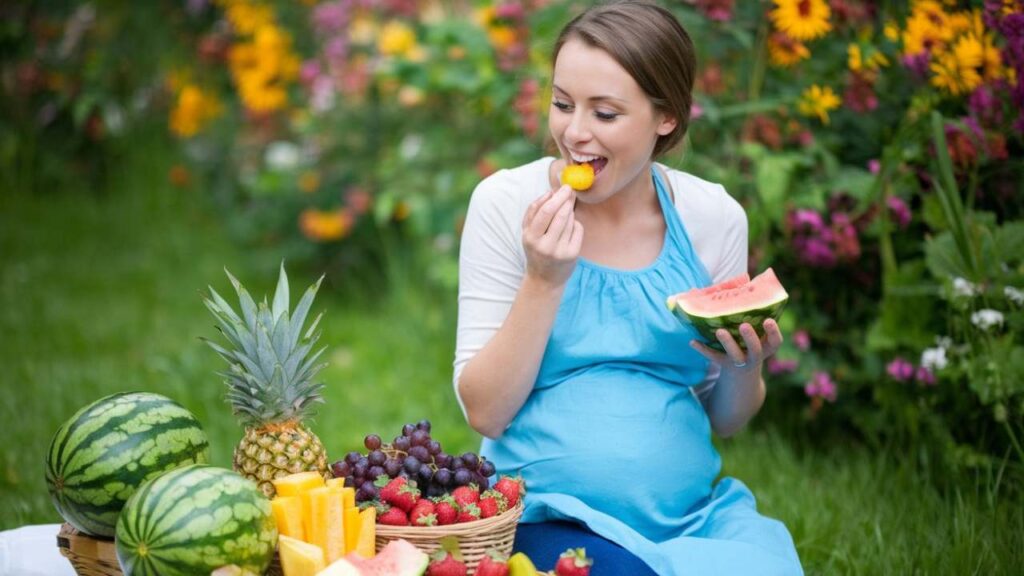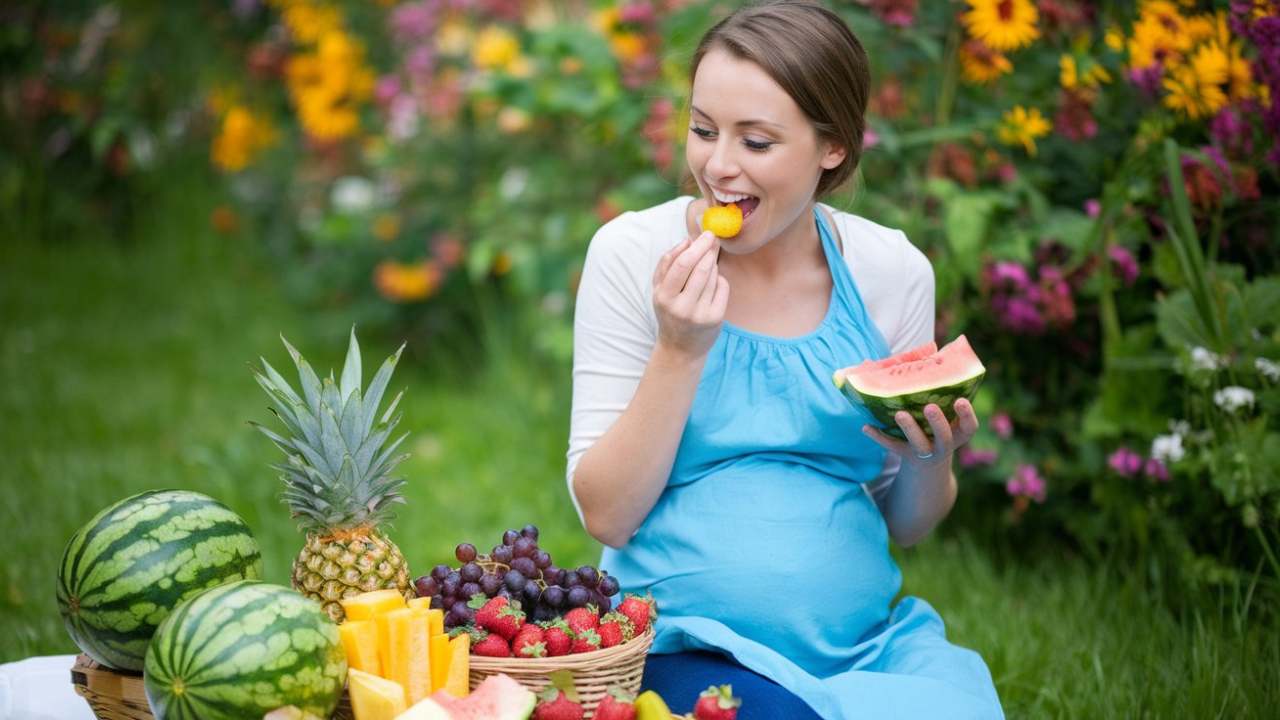Pregnancy is a time when your body requires extra care, nourishment, and attention. As your baby grows, your nutritional needs also increase. Fruits are a vital part of a healthy pregnancy diet, offering essential vitamins, minerals, fiber, and antioxidants that promote your baby’s development and support your health. Including the best fruits for pregnancy in your daily meals can make a significant difference, ensuring you stay energized, hydrated, and comfortable throughout this journey.
This guide highlights the top 10 fruits to eat during pregnancy, their benefits, and practical tips to incorporate them into your routine. Let’s explore the best options for a nutritious and enjoyable pregnancy diet.
How the Best Fruits for Pregnancy Support You and Your Baby’s Health

Fruits are nature’s multivitamins, providing essential nutrients that contribute to a healthy pregnancy. They are packed with vitamins like C and A, minerals such as potassium and magnesium, and antioxidants that support maternal health and baby development.
Key Benefits of Eating Fruits During Pregnancy:
- Support baby’s growth: Nutrients like folate and vitamin C are vital for fetal development.
- Promote digestion: High fiber content helps prevent constipation, a common issue during pregnancy.
- Hydrate naturally: Many fruits have high water content, which helps maintain hydration.
- Boost immunity: Antioxidants in fruits strengthen your immune system, keeping you healthy.
By understanding which fruits to prioritize, you can create a balanced pregnancy diet that supports both you and your baby.
Top 10 Best Fruits for Pregnancy

1. Bananas: A Natural Energy Booster
Bananas are a favorite among pregnant women for their quick energy boost. They are rich in potassium, which helps manage swelling and reduce muscle cramps, especially in the legs.
Benefits:
- Relieves nausea in the first trimester.
- Prevents constipation due to their fiber content.
- Provides sustained energy for daily activities.
How to Include:
- Add banana slices to your oatmeal or yogurt.
- Blend into smoothies with milk or nut butter for a nutrient-packed drink.
2. Oranges: Hydration and Immunity
Oranges are an excellent source of vitamin C, which helps improve iron absorption and strengthens immunity. Their high water content also keeps you hydrated throughout the day.
Benefits:
- Prevents anemia by enhancing iron absorption.
- Boosts immunity to protect against infections.
- Keeps you refreshed and hydrated.
How to Include:
- Drink freshly squeezed orange juice.
- Add orange segments to salads for a tangy twist.
3. Apples: Crunchy and Nutritious
Apples are a versatile and easily accessible fruit packed with fiber, vitamin C, and antioxidants. They support digestion and help regulate blood sugar levels.
Benefits:
- Promotes lung development in the baby.
- Prevents constipation with their high fiber content.
- Helps reduce the risk of gestational diabetes.
How to Include:
- Snack on apple slices with peanut butter.
- Bake them for a warm, comforting dessert.
4. Avocados: Healthy Fats for Baby’s Brain
Avocados are rich in healthy fats, folate, and potassium, making them one of the most nutritional fruits for pregnancy. These nutrients are essential for brain and nervous system development in babies.
Benefits:
- Supports baby’s brain growth with omega-3 fatty acids.
- Prevents neural tube defects with folate.
- Eases leg cramps due to high potassium levels.
How to Include:
- Spread avocado on whole-grain toast for a healthy snack.
- Add to salads or smoothies for a creamy texture.
5. Mangoes: Tropical Delight
Mangoes are a sweet, juicy fruit loaded with vitamins A and C. They are a great option to satisfy sugar cravings while providing essential nutrients.
Benefits:
- Promotes baby’s eyesight development with vitamin A.
- Strengthens immunity and skin health with vitamin C.
- Acts as a natural energy booster.
How to Include:
- Enjoy mango slices as a refreshing snack.
- Blend into lassis or smoothies for a tropical twist.
6. Berries: Small But Mighty
Berries like strawberries, blueberries, and raspberries are rich in antioxidants, fiber, and water, making them excellent additions to a pregnancy diet.
Benefits:
- Protects cells from oxidative stress.
- Supports baby’s brain development.
- Helps maintain stable blood sugar levels.
How to Include:
- Mix berries into yogurt or oatmeal.
- Make a berry parfait for a healthy dessert option.
7. Watermelon: Hydration Hero
Watermelon is a hydrating and refreshing fruit that provides vitamins A, C, and potassium. Its high water content helps prevent dehydration and reduces swelling.
Benefits:
- Alleviates bloating and swelling.
- Relieves heartburn and nausea.
- Keeps you hydrated during hot weather.
How to Include:
- Snack on chilled watermelon cubes.
- Blend into juices or smoothies for a cooling treat.
8. Pomegranates: Iron-Rich Superfruit
Pomegranates are loaded with iron, vitamin C, and antioxidants, making them ideal for preventing anemia and supporting blood circulation.
Benefits:
- Improves hemoglobin levels and prevents anemia.
- Enhances blood circulation for the baby’s growth.
- Protects against oxidative stress.
How to Include:
- Sprinkle pomegranate seeds on salads or yogurt.
- Drink pomegranate juice for a nutrient-packed beverage.
9. Pears: Gentle on Digestion
Pears are a light and soothing fruit, rich in fiber, vitamin C, and potassium. They’re particularly helpful for managing digestive issues during pregnancy.
Benefits:
- Improves digestion and prevents constipation.
- Regulates blood pressure with potassium.
- Boosts your immune system.
How to Include:
- Enjoy sliced pears as a snack.
- Poach them for a comforting dessert.
10. Grapes: Nutritional Powerhouse
Grapes provide vitamins K, C, and folate, along with antioxidants that reduce inflammation and boost immunity.
Benefits:
- Supports healthy blood clotting.
- Enhances baby’s development with folate.
- Keeps you energized with natural sugars.
How to Include:
- Add grapes to salads for a sweet crunch.
- Freeze them for a fun, icy treat.
Practical Tips for Including Fruits in Your Pregnancy Diet

- Start your day with fruit: Pair fruits like bananas or berries with breakfast.
- Snack smartly: Keep apples, pears, or oranges handy for a quick energy boost.
- Experiment with recipes: Incorporate fruits into salads, smoothies, or desserts for variety.
- Stay hydrated: Include water-rich fruits like watermelon and oranges.
Conclusion
Fruits are an indispensable part of a healthy pregnancy diet, offering essential nutrients that support both maternal health and baby’s development. From bananas and avocados to oranges and berries, including the best fruits for pregnancy in your meals ensures you receive the vitamins, minerals, and hydration needed for a smooth pregnancy journey. Prioritize variety and balance to enjoy the full benefits of these nutritional powerhouses.
FAQ’s
Can I eat all fruits during pregnancy?
Most fruits are safe, but avoid unripe papaya and pineapple, which may cause complications. Wash all fruits thoroughly before eating.
How many servings of fruits should I have during pregnancy?
Aim for 2-4 servings daily, depending on your caloric and nutritional needs.
Are dried fruits good for pregnancy?
Dried fruits like apricots and dates are nutrient-rich but should be eaten in moderation due to high sugar content.
Can fruits replace vegetables in my diet?
No, fruits and vegetables serve different nutritional purposes. Both are essential for a balanced pregnancy diet.
What is the best time to eat fruits during pregnancy?
Fruits can be eaten any time, but they’re especially beneficial as part of breakfast or as mid-meal snacks for sustained energy.





Pingback: Top 10 Fruits for Baby Brain Development During Pregnancy